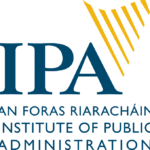A roll-out of higher education courses for students with an intellectual disability has been launched.
The courses are to be delivered in 10 higher education colleges across the country and will provide significant opportunities for students.
In addition, €1.8 million has been anoounced for inclusion measures including to roll out sensory maps of college campuses to support autistic learners and for anti-racism measures particularly to challenge racism for members of the Traveller and Roma communities.
Minister for Further and Higher Education, Research, Innovation and Science Simon Harris TD said:
“We know that people with an intellectual disability have not been represented adequately in Higher Education. We want and need our College Campuses to reflect communities.
“Today, we are making a change. Today we are opening doors and opportunities so that these learners can take their place among our college communities.
“That is why we are announcing expanded Higher Education course provision today with expected investment of over €10 million to support learners with an intellectual disability.
“Up until now, courses have been limited in location and availability but this investment will help change that and ensure there is equality of opportunity for every person in our country.”
The programmes are spanned over 10 different higher education institutions and are due to commence in academic year 2024/25. Approximately 150 students can be expected to enrol in the first year of provision.
Under this initiative, the courses will be between one and two years in length. The student will apply directly to the college involved and can avail of specific pastoral and financial supports.
Minister Harris added:
“These courses have been designed with the learner at heart. When given the opportunity, students with an intellectual disability can thrive. Access to higher education can lead to employment. It can transform the lives of students and their families as well as society as a whole.”
Minister of State with special responsibility for Disability Anne Rabbitte added:
“This is an important milestone for students. The projects being announced today will contribute to the Government’s overall efforts to support people with disabilities by providing students with opportunities to develop their personal skills for life and to develop links with employers.”
Under the National Access Plan 2022-28, funding was secured under PATH Strand 4 to support inclusion for all. Path 4 has involved a two-phase programme supporting inclusive, universally designed higher education environments and course provision for students with intellectual disabilities.
The first phase of funding was distributed in 2022/2023 and supported higher education institutions to embed universal design approaches and inclusive practices.
Phase 2 will be implemented as a three-year pilot to support an enhancement of course provision for students with intellectual disabilities.
The programmes were recommended for funding by an independent expert panel following a competitive call for proposals under strand 4 of the Programme for Access to Higher Education (PATH), managed by the Higher Education Authority.
The approved courses have been specifically designed to meet the diverse range of needs of students with intellectual disabilities and will include the provision of financial, pastoral, and educational supports.
Dr Louise Callinan, Head of Access Policy at the Higher Education Authority commented:
“PATH 4 is a key enabler of the Inclusivity goal in the National Access Plan 2022-2028. This pilot expansion of provision for students with intellectual disabilities being delivered across our higher education institutions will have a transformative impact on participating students and on the wider higher education community.
“The programmes are designed to enhance opportunities and outcomes for students with intellectual disabilities and include a tailored suite of supports to enable participating students to thrive within the higher education environment. This investment will also support future evidence-informed policy on the successful participation of students with intellectual disabilities in higher education to ensure sustainable long-term outcomes.”












